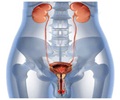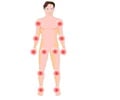Response to etanercept treatment is more likely in juvenile idiopathic arthritis (JIA) patients, recent study identifies.
Response to etanercept treatment is more likely in juvenile idiopathic arthritis (JIA) patients, recent study identifies.
It found that patients who had with low measures of disability at study entry, younger age at the onset of JIA, and fewer disease-modifying antirheumatic, drugs used before initiating etanercept achieved an excellent response to the treatment.The U.S. Food and Drug Administration and the European Medicines Agency for the treatment of JIA approved Etanercept a decade ago.
"The ability to identify patients who are more likely to respond to etanercept treatment would be an important step toward tailored patient-specific treatment and subsequently could improve current treatment approaches," according to the researchers.
Marieke H. Otten, M.D., M.Sc., of the Erasmus MC Sophia Children's Hospital, Rotterdam, The Netherlands, and colleagues conducted a study to evaluate JIA disease activity after beginning treatment with etanercept and to identify characteristics associated with treatment response.
The researchers used data from the Arthritis and Bioiogicals in Children Register, an ongoing prospective observational study since 1999, which includes all Dutch JIA patients who received biologic agents.
For this study, response to treatment was evaluated 15 months after initiation of etanercept.
Advertisement
Compared with achieving an intermediate or poor response, achievement of an excellent response was associated with lower scores on measures of disability at study entry; low number of DMARDs (including methotrexate) used before introduction of etanercept; and younger age at onset.
Advertisement
During etanercept treatment, patients experienced a total of 31 serious, 99 infectious, and 179 noninfectious adverse events.
The study has been published in JAMA.
Source-ANI















